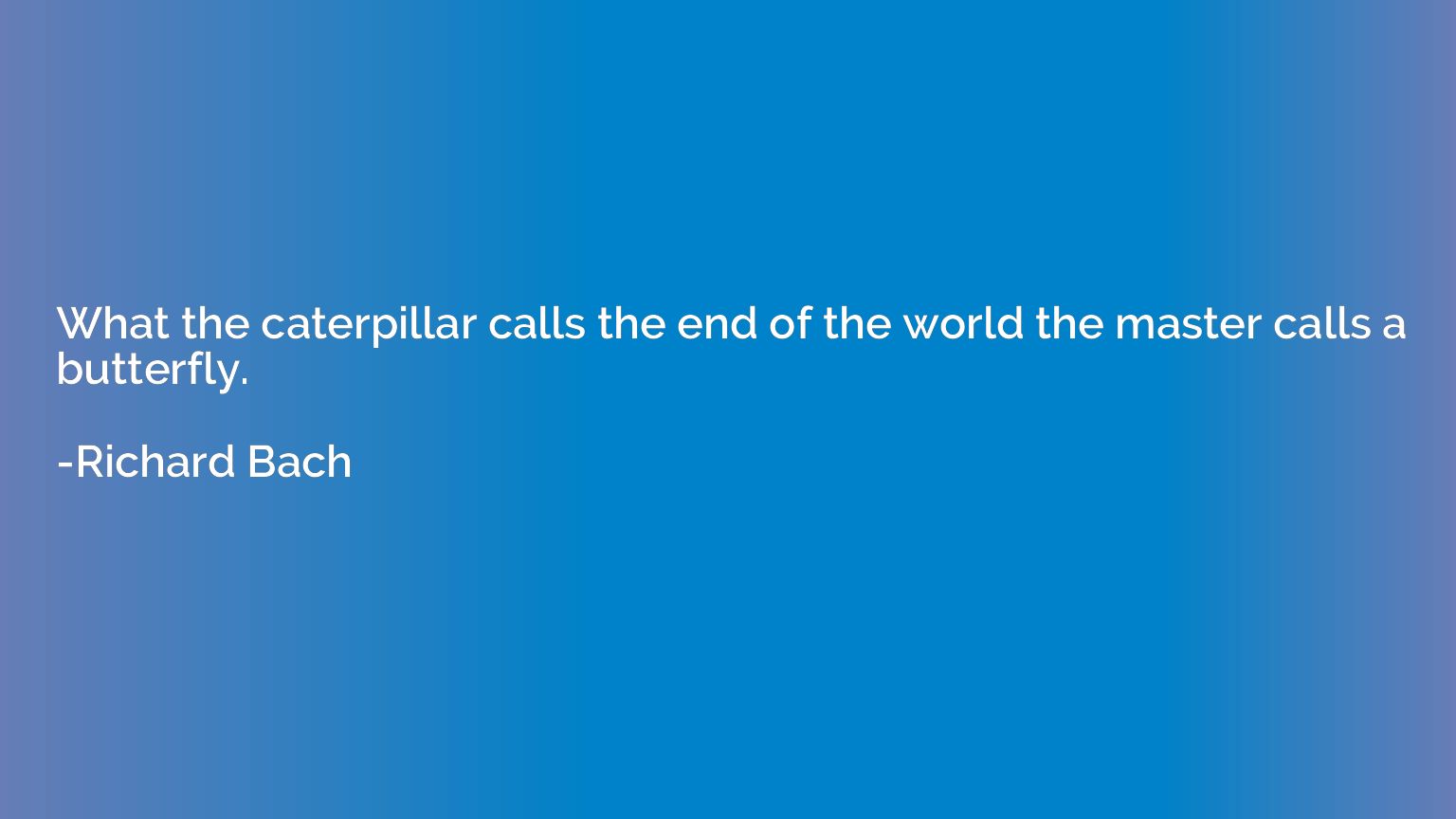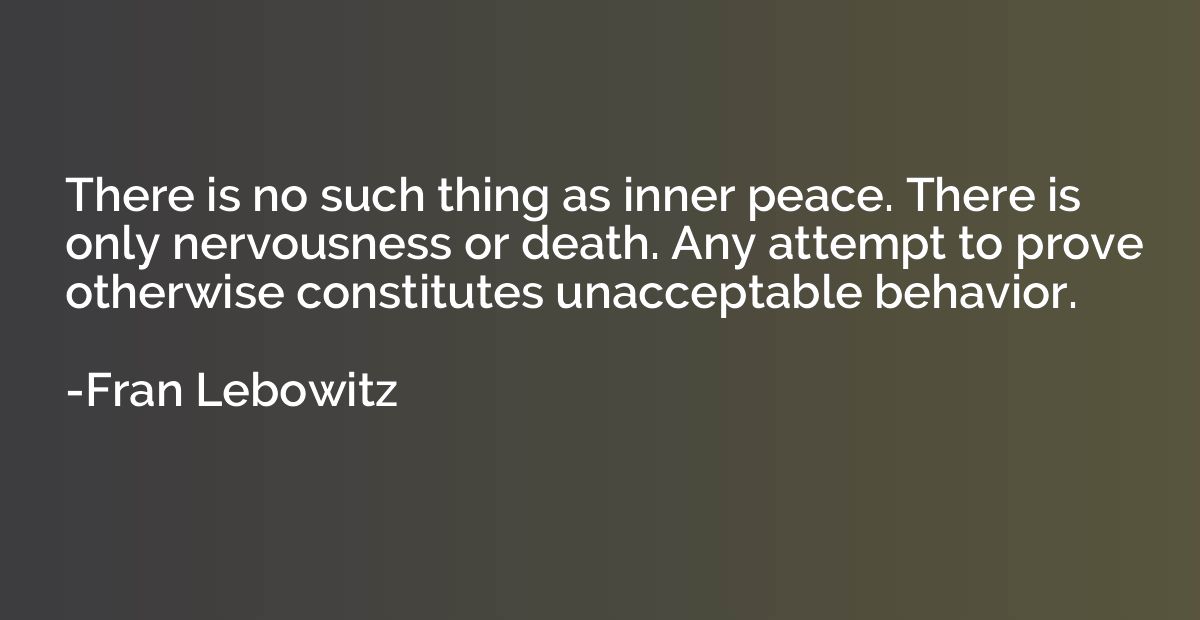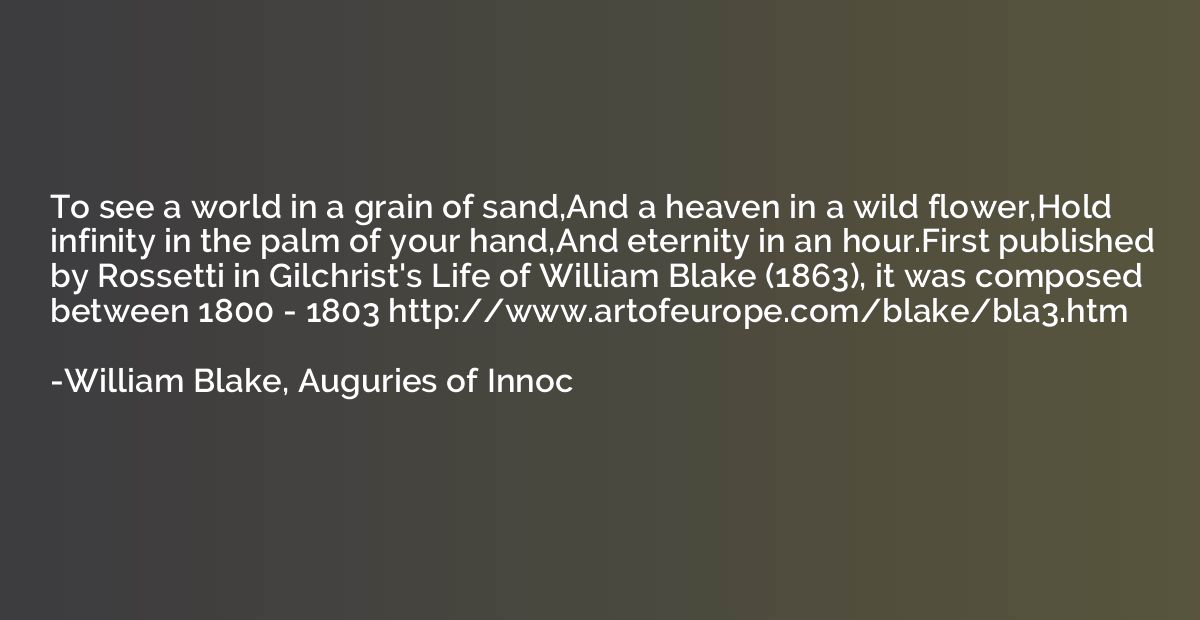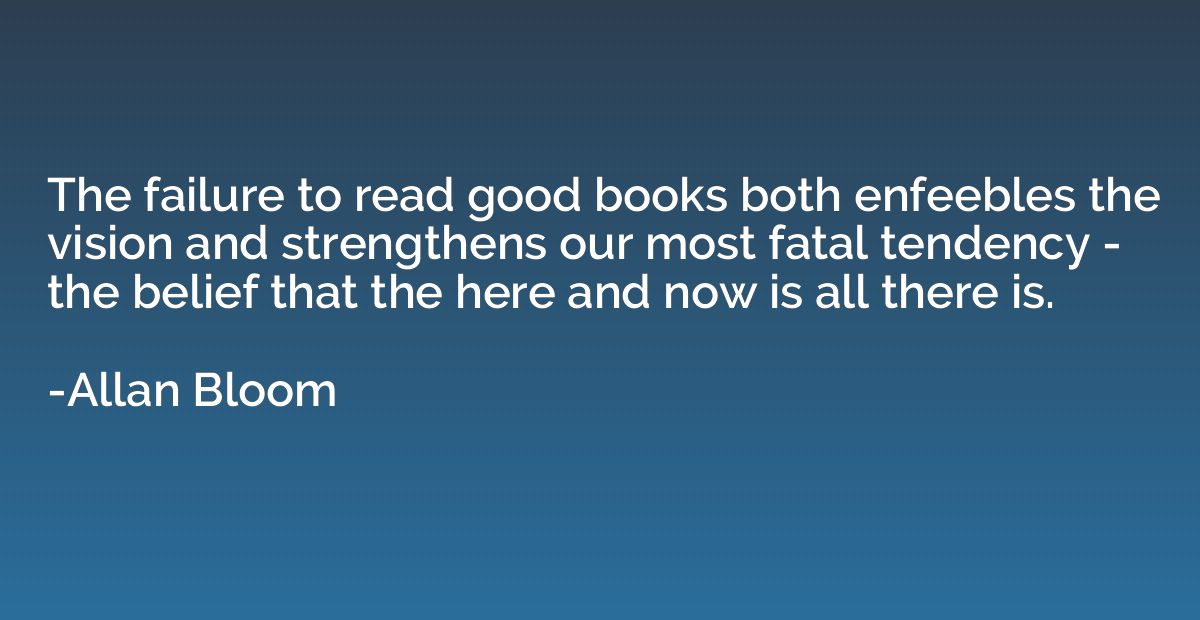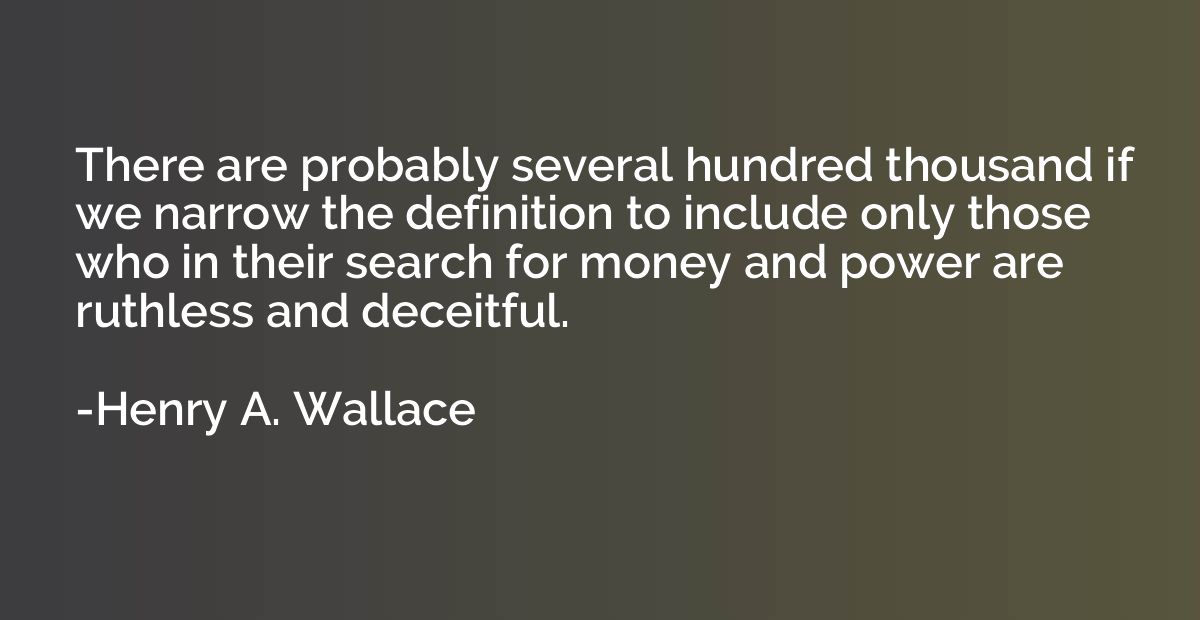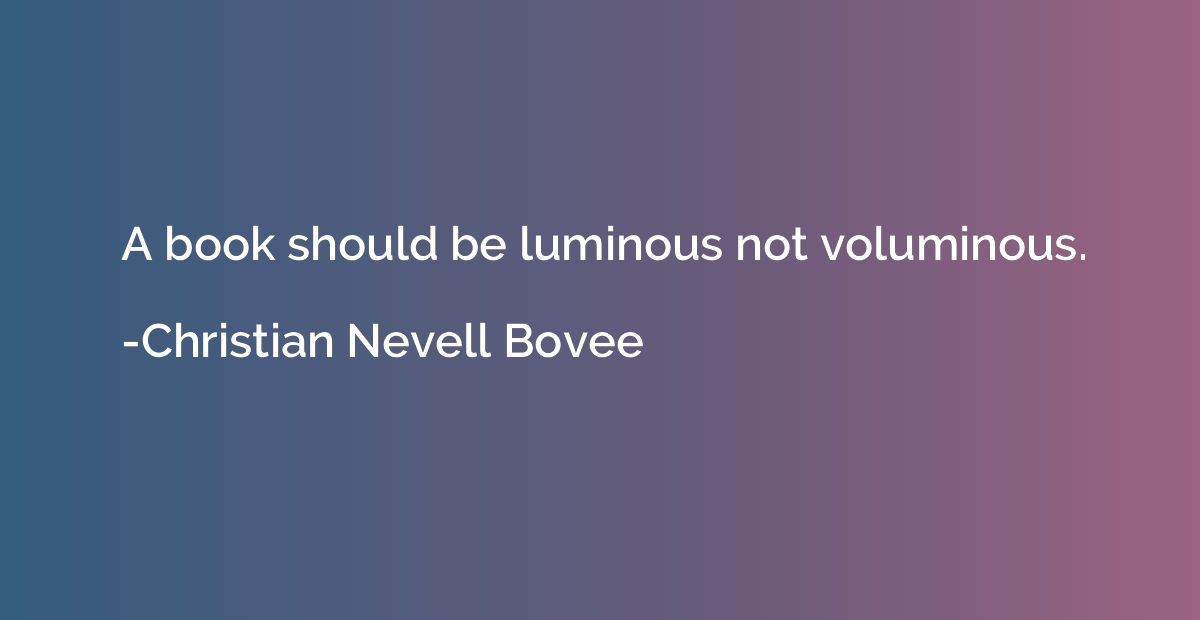Quote by Sigmund Freud
Our knowledge of the historical worth of certain religious doctrines increases our respect for them, but does not invalidate our proposal that they should cease to be put forward as the reasons for the precepts of civilization. On the contrary! Those historical residues have helped us to view religious teachings, as it were, as neurotic relics, and we may now argue that the time has probably come, as it does in an analytic treatment, for replacing the effects of repression by the results of the rational operation of the intellect.
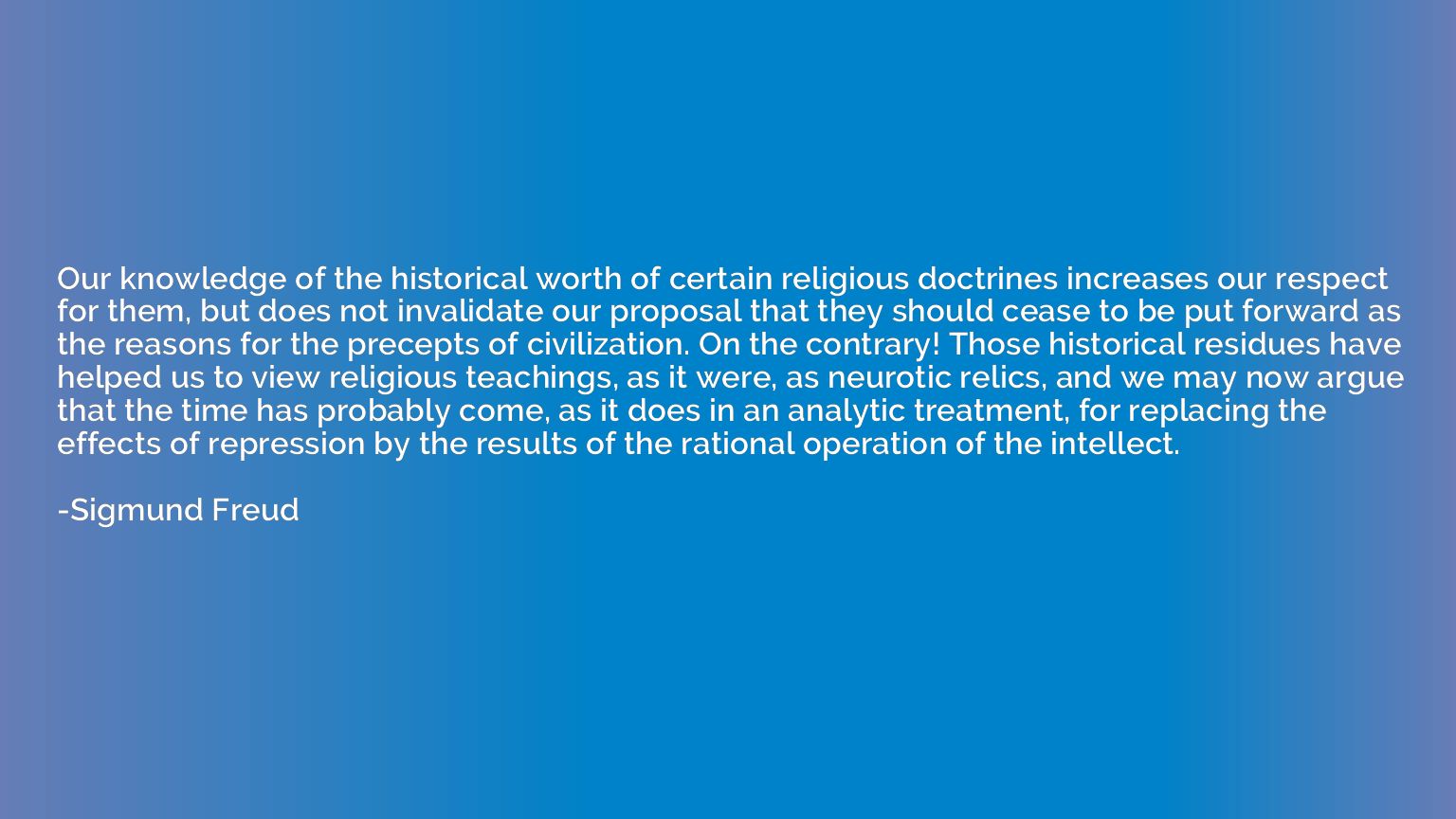
Summary
This quote suggests that while our understanding of the historical significance of religious doctrines may deepen our appreciation for them, it does not negate the proposition that such doctrines should no longer be used as the basis for societal principles. Instead, the remnants of history have allowed us to perceive religious teachings as outdated and somewhat irrational. The quote argues that it is time to shift from the suppressive impact of religion to the rational and intellectual workings of the mind, akin to the process of psychoanalysis.





